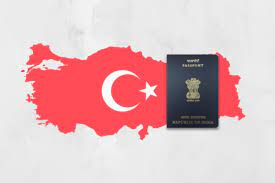India, with its rich cultural heritage, diverse landscapes, and vibrant traditions, attracts millions of visitors from around the world each year. To facilitate travel to this incredible destination, the Indian government offers various types of visas, each tailored to specific purposes of travel. Whether you are planning a leisurely vacation, a business trip, or a study abroad program, understanding the different types of Indian visas is crucial for a smooth and hassle-free journey. In this comprehensive article, we will delve into the various categories of Indian visas, their eligibility criteria, application processes, and key features. TYPES OF INDIAN VISA
- Tourist Visa
The Tourist Visa is the most commonly sought after visa for travelers who wish to explore the scenic beauty, historical landmarks, and cultural treasures of India. It is intended for individuals whose primary purpose of visiting India is tourism and sightseeing.
Eligibility and Duration
Tourist Visas are typically granted for a period ranging from 6 months to 10 years, depending on the applicant’s nationality and the bilateral agreements between India and the respective country. However, the maximum continuous stay during each visit is usually limited to 180 days.
Application Process
To apply for a Tourist Visa, applicants need to fill out an online visa application form, upload a recent photograph, and submit the necessary documents, including a valid passport, proof of residence, and a detailed travel itinerary. It is important to note that the Tourist Visa is non-extendable and non-convertible.
Key Features
- Ideal for sightseeing, recreational activities, and casual visits to friends and relatives.
- Available for single, double, and multiple entries.
- E-visa option available for citizens of eligible countries, allowing for a more convenient application process.
- Business Visa
The Business Visa is designed for individuals who intend to engage in commercial activities, attend business meetings, or establish business ventures in India. This visa facilitates economic and trade relations between India and other countries.
Eligibility and Duration
Business Visas are generally granted for a period of 1 year to 5 years, with multiple entries allowed. The duration of stay during each visit can vary, but it is typically up to 180 days per visit.
Application Process
Applicants must provide a detailed business itinerary, an invitation letter from the Indian business partner or organization, and evidence of financial stability. Additionally, proof of registration of the inviting company may be required.
Key Features
- Suitable for attending business meetings, conferences, and trade fairs.
- Enables the establishment of business contacts and partnerships.
- Allows for multiple entries, facilitating frequent business trips.
- Employment Visa
For those who have secured employment in India, the Employment Visa is the appropriate category. This visa is granted to foreign nationals who have been offered a job in an Indian company or organization.
Eligibility and Duration
The Employment Visa is typically issued for the duration of the employment contract, up to a maximum of 5 years. The visa can be extended within India if the employment continues beyond the initial period.
Application Process
Applicants need to submit a copy of the employment contract, proof of the company’s registration, and a detailed job description. Additionally, qualifications and professional experience relevant to the job must be provided.
Key Features
- Enables foreign nationals to legally work in India.
- Dependents of the visa holder can apply for an Entry (X) Visa.
- Allows for multiple entries during the validity period.
- Student Visa
The Student Visa is intended for foreign students who wish to pursue academic studies, research programs, or vocational courses in recognized Indian educational institutions.
Eligibility and Duration
Student Visas are generally granted for the duration of the academic course or program, up to a maximum of 5 years. The visa is extendable in India if the student continues their studies.
Application Process
Applicants need to provide an admission letter from the educational institution, proof of financial stability to support the studies, and details of the academic program. Additionally, evidence of previous educational qualifications may be required.
Key Features
- Facilitates long-term academic and vocational studies in India.
- Allows for part-time work opportunities, subject to certain conditions.
- Dependents can apply for an Entry (X) Visa. INDIAN VISA TYPES
- Medical Visa
The Medical Visa is designed for individuals seeking medical treatment in India. This visa caters to patients as well as their attendants, who may need to accompany them during their treatment.
Eligibility and Duration
Medical Visas are typically granted for a period of up to 1 year, with multiple entries allowed. The duration can be extended in India based on the medical requirements and treatment plan.
Application Process
Applicants must provide a letter from the medical institution in India detailing the nature of the treatment, the estimated duration, and proof of funds to cover the medical expenses. Additionally, proof of a confirmed appointment with the medical institution is required.
Key Features
- Enables access to world-class medical facilities and treatment in India.
- Allows for multiple entries, facilitating follow-up visits.
- Two attendants can accompany the patient on Medical Attendant Visas.
- Conference Visa
For individuals invited to attend conferences, seminars, workshops, or other professional events in India, the Conference Visa is the appropriate category. This visa is specifically meant for short-term visits for such events.
Eligibility and Duration
Conference Visas are typically granted for the duration of the event, with an additional period for travel and preparatory activities. The maximum validity is usually up to 6 months, with single or multiple entries.
Application Process
Applicants need to provide an invitation letter from the event organizers, details of the conference, and proof of funding for the trip. In some cases, a clearance from the Ministry of External Affairs or the Ministry of Home Affairs may be required.
Key Features
- Facilitates participation in professional and academic events in India.
- Short-term visa suitable for specific events.
- Multiple entry options available based on the event schedule.

